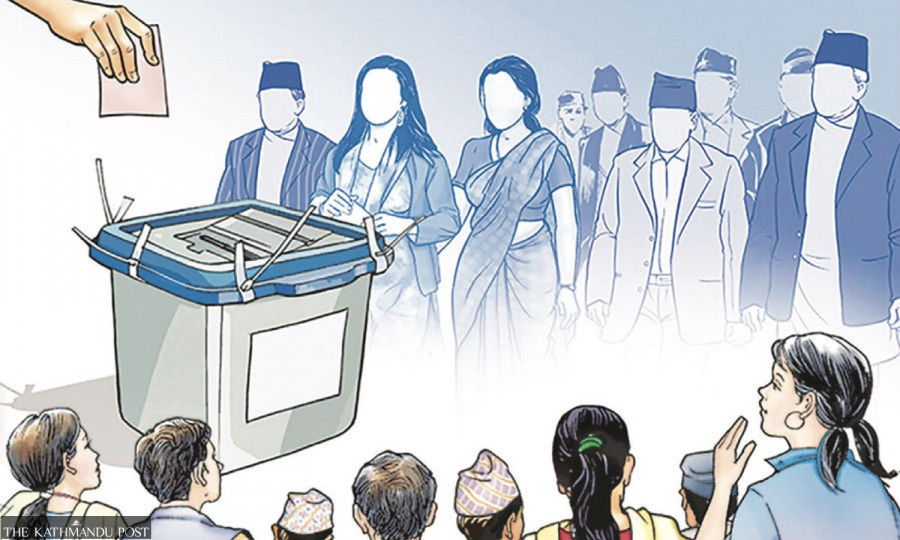Columns
Migrants’ voting rights
It is time they are recognised not only as remitters of money, but also as remitters of democracy.
Antonio Spinelli
Nepal has once again entered a moment of political turbulence. The collapse of fragile coalitions, the return of familiar figures, and the reshuffling of parliamentary alliances have perpetuated a cycle repeated for decades. Each round of instability has deepened public frustration with a political class more focused on entrenching itself than addressing the structural deficits of the economy and democracy. The persistent lack of accountability has hollowed out trust in political institutions, eventually pushing many citizens, particularly the young, towards protest and rebellion.
This pattern is not new. Since the restoration of multiparty democracy in 1990, and again after the 2006 people’s movement, moments of democratic hope and promise have too often been followed by stagnation. Parties have treated elections as occasions to divide spoils rather than consolidate rights. Reforms, whether on federalism, inclusion or electoral participation, have been repeatedly delayed or diluted. Within this history of short-term bargaining, the most basic rights of millions of absent citizens, and above all the right to vote, have been sidelined, deferred or instrumentalised rather than fulfilled.
Nepal is a nation of absent citizens. More than 5.6 million Nepalis, out of a population of 29.7 million, are estimated to live or work abroad, while millions more have migrated internally. These citizens are the country’s backbone. Their remittances contribute nearly a quarter of GDP, sustaining families, financing education, offering more employment opportunities for those who stay and stabilising local economies. Yet when elections are called, they are denied the opportunity to cast a ballot. Electoral laws still tie enfranchisement to residence in one’s constituency of registration, with no provision for absentee voting, whether across constituencies or from abroad.
This neglect cannot be attributed to a lack of evidence or institutional awareness. The Election Commission of Nepal (ECN) has examined absentee voting since at least 2008, producing detailed feasibility studies. Comparative assessments have been undertaken with international assistance, and in 2018 the Supreme Court explicitly directed the government to make arrangements for non-resident voting. Yet successive governments have repeatedly deferred reform, fearing the political implications of diaspora votes, approaching migrant enfranchisement through the lens of partisan calculation rather than as an obligation to equal citizenship’s rights.
The cost of this inanity has been borne above all by Nepal’s youth, the same generation that a few weeks ago has filled the streets to demand accountability. It is the youth who predominantly migrate for work, study and to seek opportunity abroad. By excluding them from participation, leaders have sent a clear message: Their remittances are indispensable, but their voices are disposable.
Nepal is not alone in facing this dilemma. Across South Asia and beyond, countries with large migrant populations have struggled to balance inclusion with integrity. Bangladesh has debated proxy voting for its diaspora, recognising both the scale of remittances and the democratic principle of equal participation. India has experimented with proxy and postal ballots for millions of non-resident citizens. The Philippines, with one of the world’s largest diasporas, enfranchises millions abroad through a mix of embassy voting, mail-in ballots and, more recently, online voting.
These systems are not flawless. Each has faced challenges around feasibility, security, cost, trust and sustainability. Yet they demonstrate a critical point: Migrant enfranchisement is possible when supported by political consensus, adequate resources, technical capacity and integrity safeguards. More importantly, they show that democratic states increasingly recognise migration as a permanent feature of modern life. Excluding absent citizens not only denies a basic right, but it also weakens institutions, undermines electoral legitimacy and risks widening the political gap between governments and the citizens on whom they depend.
For Nepal, the debate is not without precedent. Both the ECN and the Supreme Court have acknowledged the legitimacy of extending voting rights to absent citizens. What remains is a political choice about when and how to move forward. International comparative practice suggests several avenues. Migrant enfranchisement can be reframed less as a logistical or financial complication than as an extension of the democratic principle of political equality that cannot be neglected any longer. Reforms can be built on broad consultation among government, political parties, the ECN, civil society and diaspora groups, with the new Parliament, once in place, providing the clarity the ECN requires to act.
Attention will also need to turn to resources and capacity: Extending the franchise entails costs for logistics, training, human resources, technology and outreach. Some countries have met these through reallocating resources linked to foreign employment and remittances, others through international support. Reform can also be phased: Diplomatic mission voting may be the most feasible entry point, followed by pilots of postal voting, with more advanced digital options explored carefully and over time. Incremental steps allow refinement, consensus and trust-building. Inclusivity should also remain central. Without deliberate measures, women, marginalised groups and lower-income migrants risk exclusion through cost, access or procedural barriers.
None of these approaches are prescriptive. Each country has chosen its own path, shaped by its laws, resources and political climate. Nepal’s current political reset offers a rare and long-delayed opening. With the rules of the game being redefined and citizens demanding accountability, there is space to revisit vital reforms too long postponed. Ultimately, whether migrant enfranchisement becomes part of this renewal is for Nepali institutions and citizens to decide. But the choice will have lasting implications: Either to continue excluding millions of absent voters, or to reconnect the state with its most dynamic and young population and thereby strengthen the foundations of democratic legitimacy.
Nepal’s migrants have kept the economy afloat and their families alive through years of hardship. It is time they are recognised not only as remitters of money, but also as remitters of democracy, citizens whose participation is indispensable to building a more just, resilient, accountable and legitimate nation.




 12.12°C Kathmandu
12.12°C Kathmandu















